Had you asked me twenty years ago how to become a professional singer, I would have guessed: talent, hard work and luck.
But today I realise that it takes a different skill set. Sure, it takes some talent. And definitely it takes hard work, but you need to know what to focus on. And luck? No.
And... some things weren't on my radar that I know now... entrepreneurial skills and business skills!
6 skills you need to become a professional singer
This is what I found through experience in singing and teaching voice. These six skills are required to make it.
- Musical skills
- Presentation skills
- Business skills
- Financial skills
- Confidence
- Resilience
Skills 1&2 are the “talent” part. Talent is in quotation marks because you can learn these things.
Skills 3&4 are entrepreneurial skills. You are going to be your own brand and business, unless you are waiting for the messiah... I mean to win the lottery... I mean to get discovered.
Skills 5&6 are Character traits, which I believe can be acquired.
In this article I want to break down all of these and help you get everything it takes.Skill 1. Singing talent - can I buy some at the store?
Musical skills and stage skills (singing skills or vocal technique - for our purpose) are what the "talent" part consists of. You'll notice the quotation marks here, and they are intentional. I don't believe one is either born with talent or they have none. Some will have some things come naturally to them, but the others can learn, and become quite skilled as well.
As a voice teacher it is my job to teach you how to sing. What does that mean? Improve the voice, for once, make it richer and more in your control = vocal technique.
But also, that means presentation = stage skills. Even if you don’t want to sing on stage. I’ll explain why in a moment.
You do need both stage and vocal skills to become a good singer. And each skill demands work, hard work, and lots of it. But, as always, there is good news!
Stage skills and vocal skills can feed off of each other. Meaning, you work on one set of skills, and that will give the other one a boost. Remember I said I would explain why working on stage skills is important even if you don’t want to perform? That’s why!
How do vocal technique and stage skills boost each other?
You should combine both stage and vocal skills on 2 scales: Everyday and periodic.
Everyday: Whenever you practice, you take the last few minutes to sing through, without thinking of technique. That’s your opportunity to develop some stage skills, for example by doing a performance exercise, and that’s the real fun part of your practice. You are just singing.
Periodic: After you have made some good progress with your teacher, and have done some good drilling on your best tricks (drilling is explained in my practice article) - it’s time to go for it.
Take at least 2 weeks for stage skills: Performance exercises, musicality, expression, and experiment - the weirder and stranger the better! The result - tons and tons of pure fun. AND - better technique.
How come stage skills improve your technique?
You will have to take my word for it that they do.
Naaa I’m just kidding, of course I’ll tell you how: improving your presentation and confidence while singing puts you in a position of power and knowledge. You are therefore much more likely to successfully carry out your technique, instead of wasting time judging yourself and not doing the actual technique!
At this part of the practice, you give your mind a rest from the technical battle, and some of that work can start to sink in and manifest. Some performance exercises can also indirectly work on technique, but even if not, just you letting the pressure go and coming from a place of confidence - will raise your chances of applying the technique you have learned.
Read more: Can anyone learn how to sing?
Skill 2. Musical and stage skills
How can I actually get some vocal and stage skills, you might ask?
You can learn voice in many forms and combinations thereof: voice lessons, voice courses and youtube tutorials. Whatever you do, you need a certain method of learning.
The how to practice singing article I already mentioned is key. Other than that I give thorough advice on how to learn to sing on a budget, that will give you ways by which you can acquire your singing skills.
For stage skills you can check out my SingWell on Stage course or my YouTube video about performance exercises.
My stage course to improve skills 1&2
In SingWell on Stage you will learn, as explained above, how to be better on stage - whether you are the only audience you have, or you sing in arenas.
It also makes the singing better overall as a bonus!
Skill 3. Business skills
What do these skills have to do with me as an artist?
Any kind of arts or creativity, one could argue, are one far end of a spectrum. On the other end reside things such as practicality, business, money...
That’s how I grew up thinking. Money is for lawyers, doctors and traders. Artists don’t make money, they struggle for a living, and they are not good at it anyway, so why bother. They are way too hung up with their art to do good business.
I have bad news and good news for you.
The bad news: Business and financial skills are essential if you want your profession to be the arts, singing is no different. Because you, as an artist, are a business. You probably don’t like to hear this, but this is a fact.
I learned about needing those skills the hard way, and by then it was (I thought) too late. I had no emotional or financial resources left. I truly, deeply hope it won’t happen to you, too.
Don’t worry, the good news is coming up in a moment...
Skill 4: Financial skills
Finance is a difficult subject, but for artists - it’s more difficult.
I’ll go further and say I only have 2 people off the top of my head who are artists and have the inclination and affiliation for making good money.
What does one need to know about finances as a singer?
A few things I’d say are a must:
How to have enough to live on while you are building yourself as an artist.
How to make money out of your profession (singing)
How to save money (depending on where you live you might be solely responsible for your own pension, did you know that?!)
*Handling all of the above issues can be tricky if you hold the “artist mentality”: I don’t need a lot of money, it’s better that I focus on my art, I can make it with a part time job or living off of my savings. It will be ok, I don’t do this for the money, I do this because I have a calling/it’s important to me/I love doing it/for the art.
Guess what, dude, your art will not be happening if you starve to death. You need money.
Specifically as a singer, you need money not only for lessons, but for:
website management
travelling for auditions and shows
recordings
maintaining your body (yoga, massages, private bodywork sessions of any kind)
good nutrition
make up
outfits
photoshoots
the list goes on and on
As a singer you should know this about your finances
And, of course, as a financial guru, I have all the answers (not. But I have some hard learned lessons that will help):
- When you start out, get a job you are good at, preferably related to singing or music. Make it a full time job if you need to. When you get good at singing and start getting some jobs, you can move to part time with your other job.
- As soon as you can, audition, or apply for jobs. You can start small, but don’t wait until you are celebrity level. There must be something you can do already now. And don’t you dare say no to an opportunity to apply. They can say no to you, YOU don’t say no to you. Got it?? Next up is gaining experience and better jobs, and learning how to make a business out of yourself (coming up in business skills).
- In order to save money you have to make sure you make more money than you spend and save (or even invest) the difference. Because when you are 70 years old YOU ARE GOING TO NEED MONEY. For your retirement. I don’t care if you are 25 right now and think you have all the time in the world. When you retire you'll need a couple of decades worth of self sustainment.
Why a professional singer has to be a business person
It is possible that you will be taken under the wings of some big label, Mariah style, or be discovered by an agent and your career will be given to you. But 99.9% chance is that your singing career will be entirely your doing. If you want to succeed in the music business you have to realize this reality: You are a brand, you are a business. And as long as you have no agent - YOU need to become a business person.
That means, if you are not good at marketing - get a course in marketing (for example, Middemusic blog gives you 18 music marketing strategies - so you can't say you don't know what to do!)
If you are not really into promoting yourself, you need to get some confidence (I heard they sell that on amazon. If not, get a course and work on yourself, maybe my stage course can help you) and learn how to promote yourself as a brand.
Sounds overwhelming, I bet, if you are anything like how I used to be as an aspiring singer. I suggest you view it as just another set of skills you need to become a singer. You need vocal technique, you also need business skills.
How to get business skills as a singer?
If you are wondering if I have any specific recommendations for a business coach, I happen to know one personally, which gives a course directed at musicicans:
My good friend, the fantastic singer-songwriter Nani, just happens to be one of the 2 people I know with both musical and entrepreneurial skills. She has a course on how to DIY your musical career. If you follow her advice, you'll how you don't need to pray for a Cinderella story. You can do it yourself.
*She is not paying me for this. But I am recommending her as a consultant and her course. Knowing how she made her career happen I know the advice she has to give is gold.

Advice for my 21-year-old me
I've done this before: thinking what if I knew then what I know now. How would things be different?
I would tell myself three things:
- not to rely only on my talent, but get the other necesarry skills.
- not to wait for someone to give me an opportunity, but create my own
- not to limit myself to too narrow a dream. I wanted to be a diva on the big opera stage. But there were so many things I could do on the way, or instead, and I ruled them out.
Be open, do anything you can in this field of singing, make friends and connections and keep doing, doing, doing.
Skill 5. Confidence
What if it's just not me?
Confidence and resilience are perceived to be personality traits which either define you - or not. But I will challenge this deterministic view. I'll talk about why those traits are essential to succeeding as a singer and performer. Then I'll also tell you how you can get you some of those golden characteristics.
Confidence
Confidence is the name of the game. You know it, everyone knows it. If you look and sound unconfident people see through that.
In the best case scenario the audience will think: Oh, yeah, that sounds nice. Too bad they look so insecure. Maybe they should get more singing lessons.
In the worst case scenario they will think: Oh, god, that’s not so good, is it..?
On the flip side - if someone is confident - they are forgiven almost anything. Any mistake, any wrong lyrics, even the outrages, forbidden stopping in the middle of the song and starting over.
The reason confidence makes you so awesome is because of what we discussed above, regarding performance and stage skills. They smooth out mistakes and create the impression that whatever you did - that was your plan all along. The audience is convinced by it, and will tend to evaluate the overall experience, not a certain mistake you made in a certain note.
How do I get confident, let alone in my singing???
Being unsure of your singing level and capability is super common, it's human. And very often it is not a function of how good you actually are. It's just the way it is - we tend of over criticise ourselves and not think we are good enough.
So what can be done? Ever heard of faking it? Just like faked documents (not exactly, fake documents are illegal) confidence can be faked, and eventually earn you some real confidence. Don’t believe me? I don’t care! That’s how confident I am about this.
Just kidding, of course I’ll give an example: One of the most renowned actors, Alan Rickman (Shakespeare theater actor, professor Snape in the Harry Potter movies, that one) Was a master confidence faker. Had he been able to fake material confidence tokens and sell them, he would be a rich man… Watch how he tells about how insecure he was all the time.
Had dear Alan, may he rest in peace, not known how to fake it, and convince everyone he is in fact as confident as can be, he would have had no career.
How can we fake confidence? We talked about performance exercises. That’s a good start. But These are just a few ideas. You need to find your way to pretend that you are happy with whatever you look and sound like, even if you hate it. I mean it. It needs to be extra clear to whomever looking, even if it’s just you, that you think you are the best thing alive.
You are probably thinking: this sounds like nonsense, it will never work.
I know why you think that. Let me tell you a story:
In one of my group lessons a guy in his 60's, let's call him Peter, had his turn to sing. He did his best, but you could tell there were a bunch of issues to work on, and above all - he looked like he really didn't want to be doing this, and not enjoying it at all.
Rather than fixing his many vocal problems, I simply asked him: will you sing again and pretend as if every bit of sound coming out of your mouth is deliciously amazing? As good as your favorite singer. He looked at and laughed: That feels undoable, I believe the opposite. I said, I know. Do it anyway.
He sang again and it was like it was a different person singing. The technique was significantly better, but most importantly - we all enjoyed the song. He testified that he didn't believe it would be so effective. But it was. It was all he needed at the time.
I have seen this working time and time again. It's worth the shot -you'll see what I mean when you do it yourself.
Confidence works from the outside in! You know why? Because when it is effective, namely it makes your singing and performance better, and it makes your general composure better - you see that and others see that.
That’s how ‘fake it till you make it’ becomes a self fulfilling prophecy.
Faking your confidence has to extend to every interaction you have which regards your singing. Not just when you actually sing. Interviews, introducing yourself in auditions, networking, whatever it is. And the more you do it, the more you will start buying it. And if you are like Alan, maybe you will never buy it. But people might buy tickets to your show anyways 🙂
Skill 6. Resilience
Alright, on to resilience. Here I want to talk again about that dear friend of mine (some of you have seen her by my side in some of my reaction vids), Nani Noam Vazana.
So Nani wanted to participate in this festival. So she contacted the founder offering her show. He said it was fully booked. OK, no biggie, next year she contacted him a bit earlier in the year, he said it was too early and she should ask again later. Then later he was suddenly fully booked again.
Hmmm...I would have thought by then that he is just not interested? Take the hint, girl, he is just not that into you! Well, Nani was not so sure about that.
She kept on going, every year asking and getting rejected, but she didn’t take it personally. She had no reason to. He didn’t say: leave me alone, I don’t like your music. So she kept going.
Six years later she got an offer to participate in the festival on the main stage, plus an offer to sing solo with an orchestra in another concert! That was worth the wait. And that’s resilience and a nutshell.
How can I become resilient, too?
Note how Nani was never rude or annoying. She persistently and calmly asked each year: well, how about this time? Any slot available? Here is what I got to offer.
Once a year, that’s all. But never giving up.
Don't assume people are not interested, keep offering what you got, don't spam, but keep coming back. Above I mentioned her DIY course, it teaches you how to get this personality trait, resilience, and all the strategies that will get you spots in festivals, concerts and gigs. So get after it.
How long does it take to become a professional singer?
It depends on the level you start from, and your level of dedication and how structured your process is. Five years is a realistic target. The best case scenario, where you can already sing quite well but only need technique here and there, and work methodically on the other skills? Two/three years.
In my case, I started when I was 21. It took me 12 years to reach the level of a professional soloist. If I would have had more focus and structure, it would have saved me at least half of that time. Most time is lost through lack of structure. I didn't have a method in place.
For me, financial and business skills changed the bottom line. When I reached a pro level, I still wasn't as successful as I could have been, because I lacked the business skills to have a profitable career.
How to become an opera singer?
If you want to specialize in opera the training is extra intensive. You definitely will need all of the above mentioned skills:
Musical skills
Presentation skills
Business skills
Financial skills
Confidence
Resilience
Most professional opera singers at one point went to music academy/college. In my view, the main benefit of this institution is that you are taught stuff surrounding the singing, like diction, musical theory, acting.
The singing itself you can learn from an excellent private teacher that is specialized in opera. Some people would argue that the best teachers don't teach in singing colleges.
But college does have masterclasses, where all kinds of experts are invited.
Also, and very importantly, in music college you get a platform to perform. In my academy every week.
Graduating from a music college is the norm for professional opera singers. I followed that route. But a friend of mine never graduated from college. She went to an opera studio, a sort of internship for the opera. After a few years of further training she got a contract at an opera house.
Get the mentality and technique
to become a good singer
In my course Make Singing Click you will get a system to go about your vocal process in a productive and systematic way
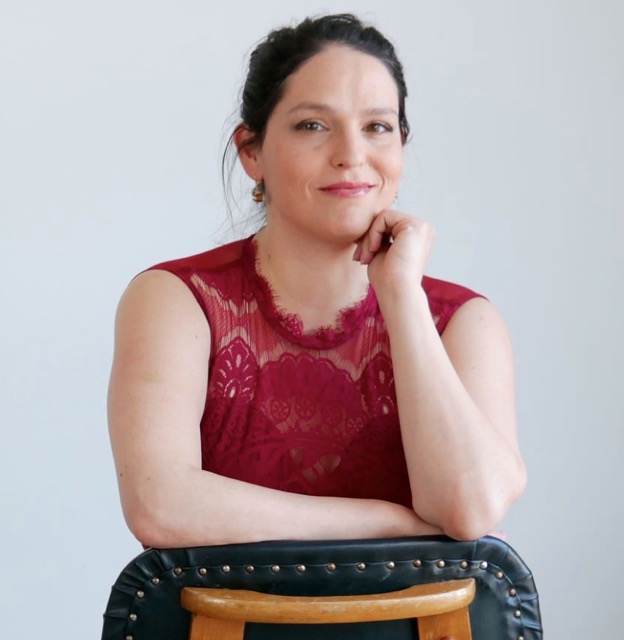
About the author
Linor Oren
I'm an opera singer and (online) voice teacher, based in Amsterdam. It took me more than a decade to overcome my share of mental and physical issues and reach a professional level as a singer. Because of this background, and my 10+ years of teaching experience, I believe I can speed up your learning curve as a singer.
Take your desire to sing seriously: get tools to become a better singer in your inbox
Eye-openers, tips and stories. Also content that I don't publish on my website.
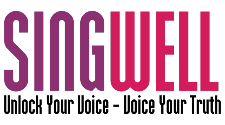
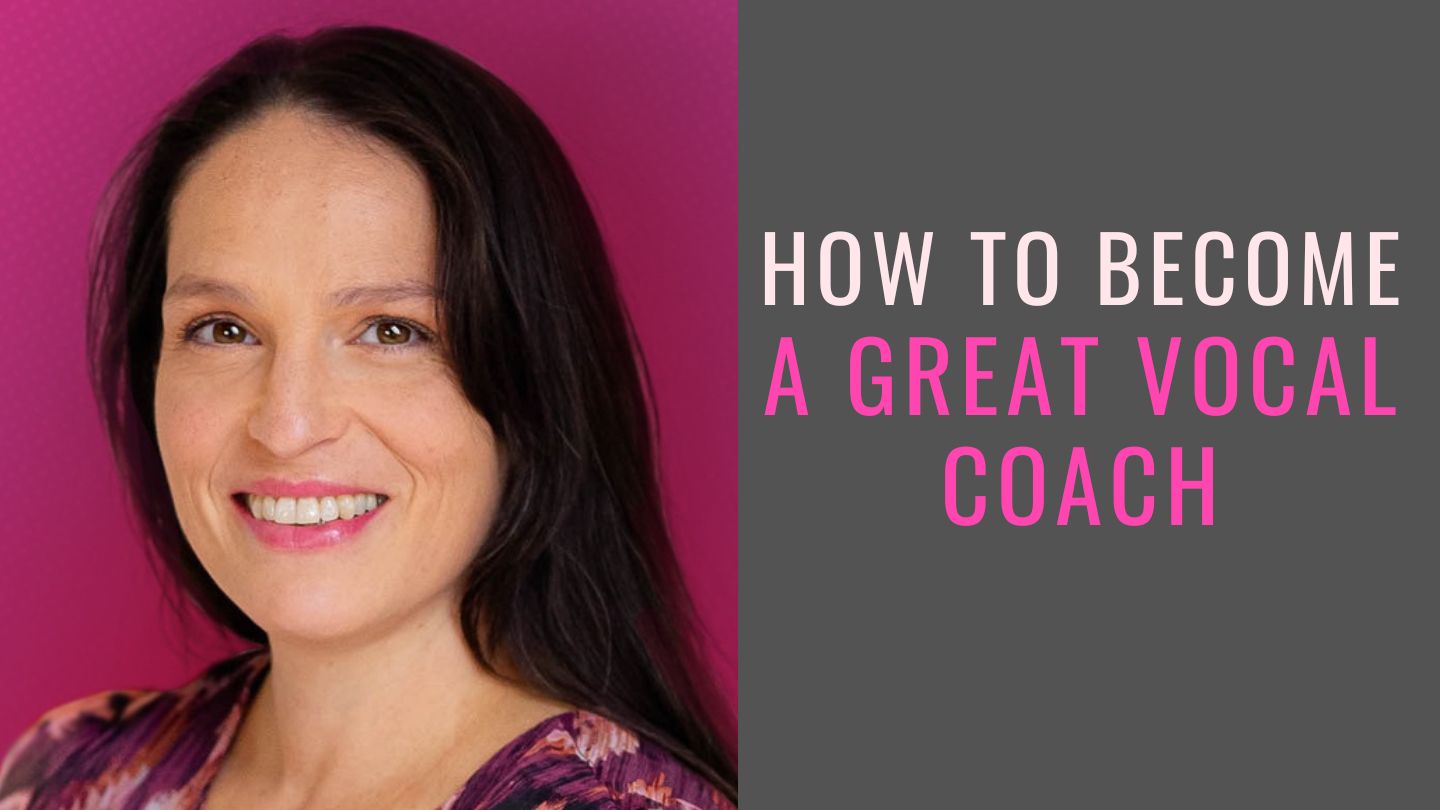
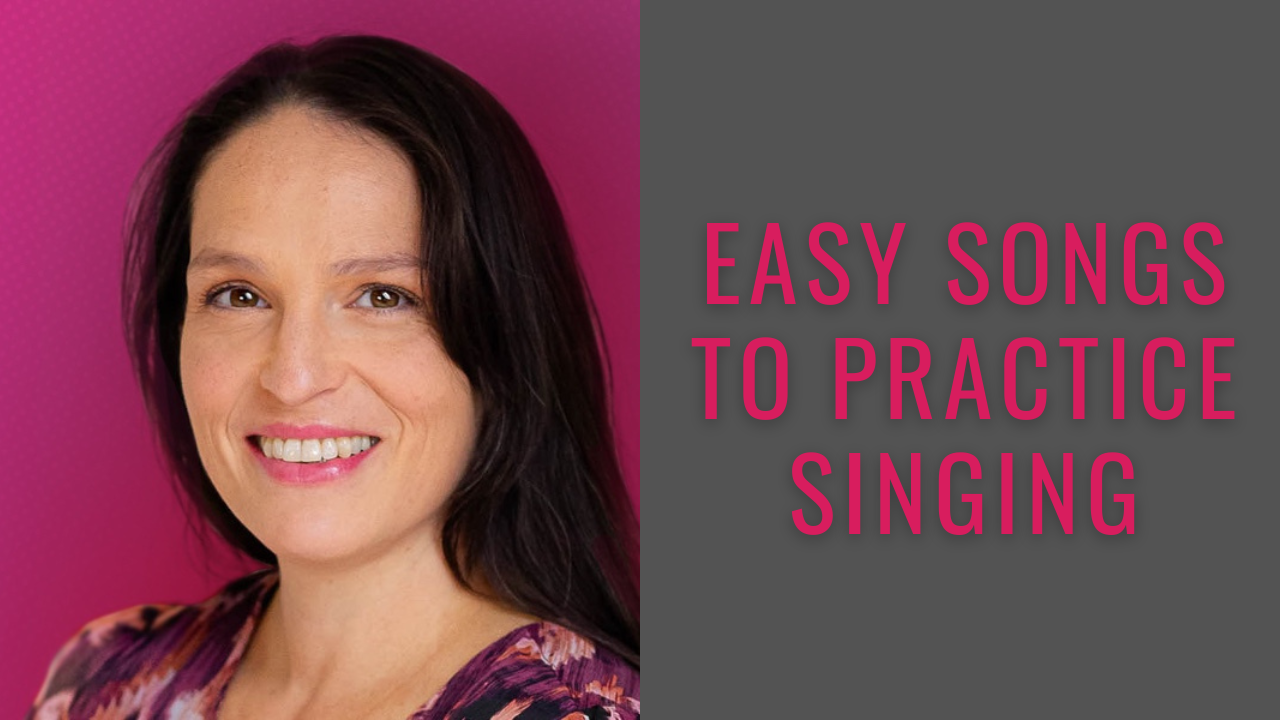
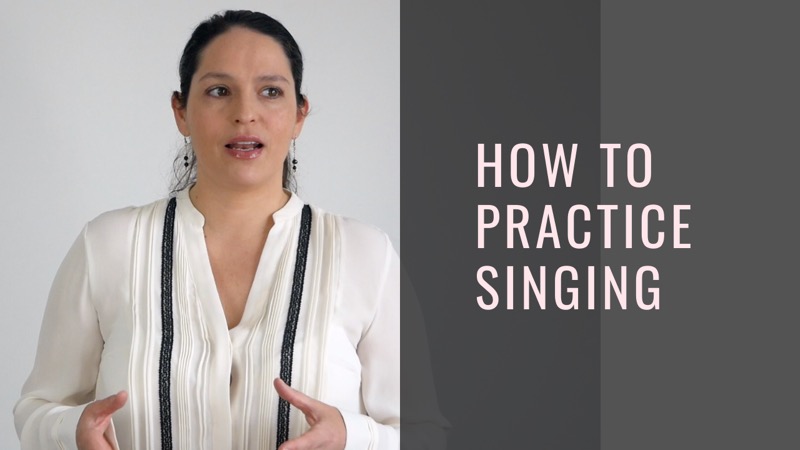
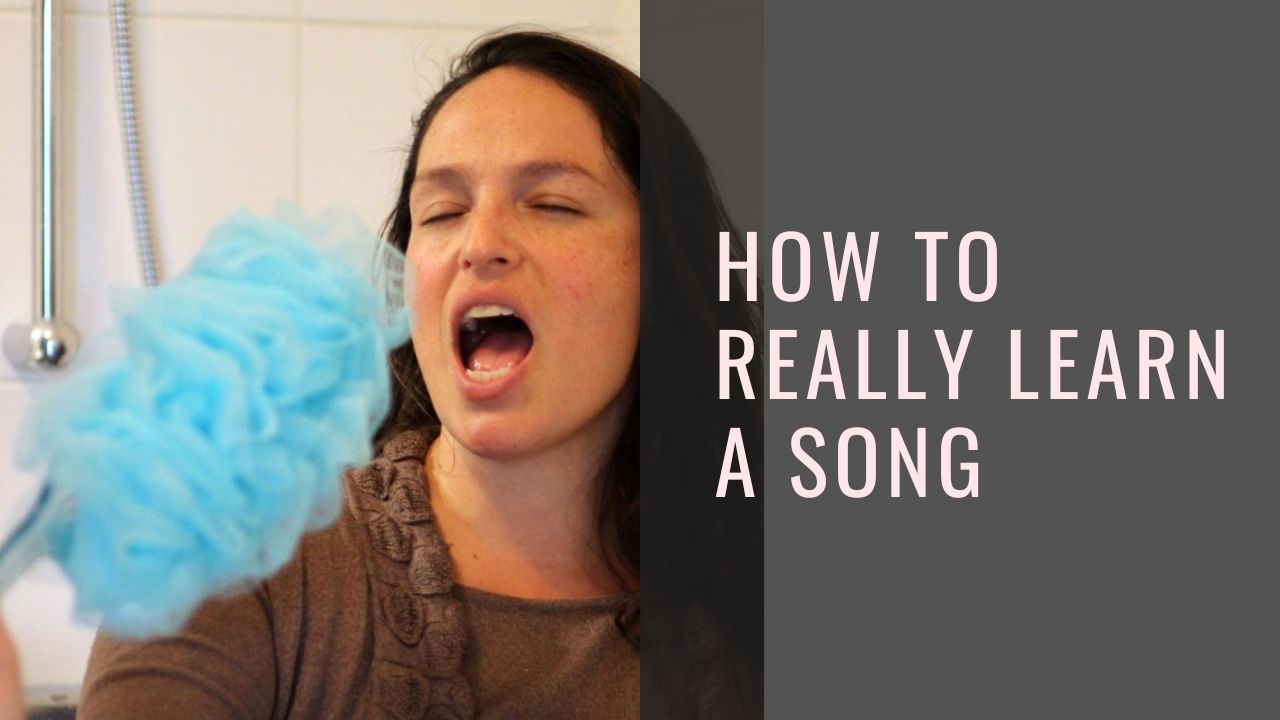

Thank you sooo much for your brief video on what it takes to be a singer, especially the importance of confidence. I feel you displayed marble solid confidence in your presentation. Wishing you continued success!